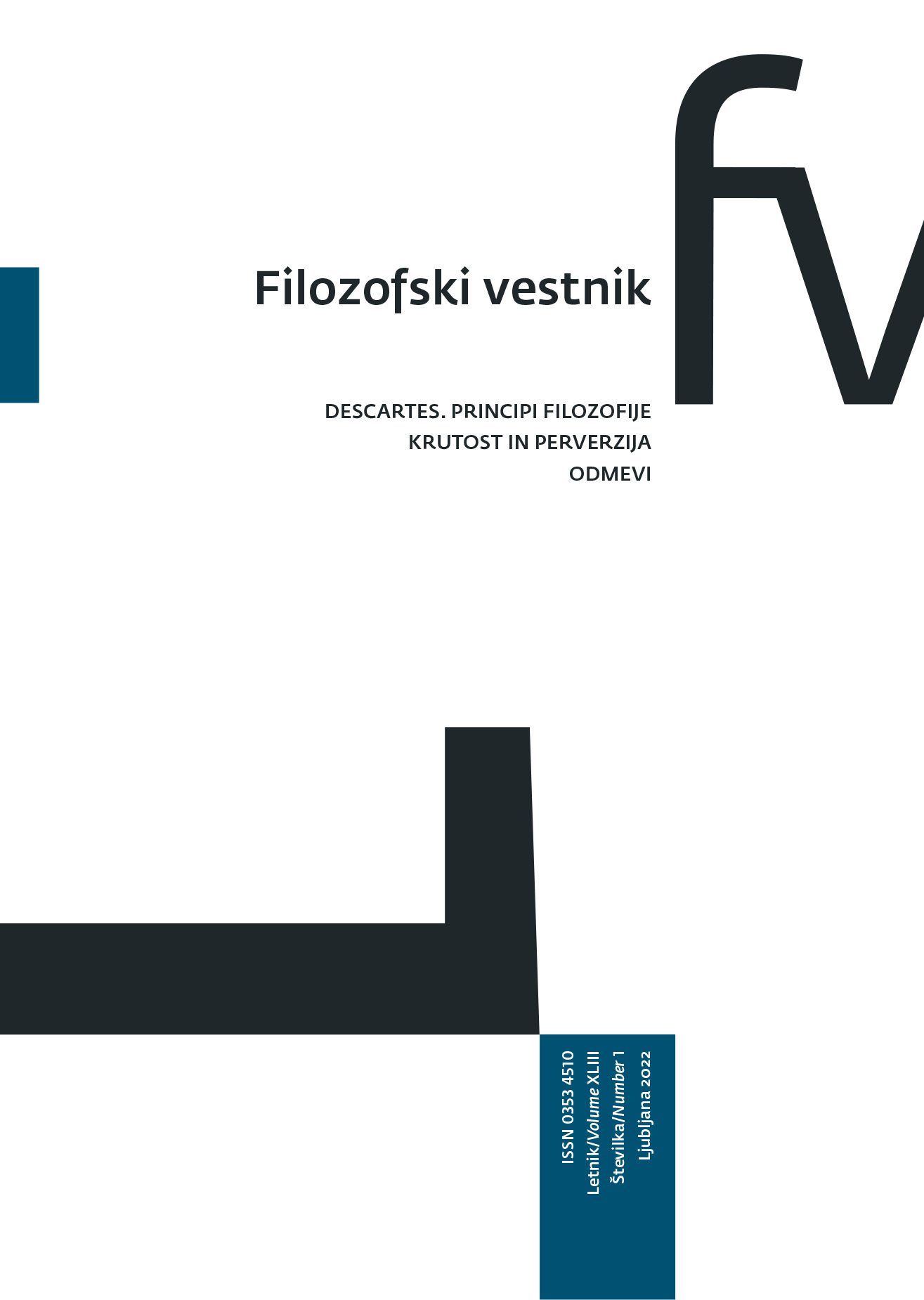Virus: Neoliberalni detektiv v imuni slovenski družbi
DOI:
https://doi.org/10.3986/fv.43.1.08Ključne besede:
Virus, (avto)imunost, COVID-19 v Sloveniji, neoliberalna detektivska fikcija, kulturna konservativnostPovzetek
Članek s pomočjo imunitarne paradigme Jacquesa Derridaja in Roberta Esposita analizira slovenski detektivski roman Virus. V prvem delu raziskujemo vezi med neoliberalizmom in vzponom slovenske avtoritarne države v času prvega vala pandemije covid-19. V drugem delu pokažemo, da je neoliberalni etos reprezentiran v liku sebičnega in samodiscipliniranega detektiva, v značaju nedružbenega in privatiziranega zločina ter v značaju samopravičniškega zločinca. Dejanja detektiva in zločinca so avtoimunitarna. Čeprav protislovno oba delujeta kot zavetnika skupnega dobrega, oba sledita zasebnim interesom. V zadnjem delu dekonstruiramo binarna nasprotja, na katerih temelji dvojni status umorjenih žrtev, ki so zločinsko odgovorne in posedujejo nenavadno (neheteronormativno) ali patološko spolno identiteto.
Prenosi
Literatura
Ariès, Philippe, Western Attitudes Toward Death from the Middle Ages to the Present, prev. Patricia M. Ranum, Baltimore, John Hopkins University Press, 1974, str. 86–108.
Boman, John, H. in Thomas J. Mowen, »Global crime trends during COVID-19«, Nature Human Behaviour, 6 (2021), str. 821–822.
Bauman, Zygmunt, Liquid Life, Cambridge (Ma.), Polity Press, 2005.
Benjamin, Walter, The Selected Writings, Vol. 4, 1938-1940, prev. Edmund Jephcott et al, Cambridge (Ma.), Harvard University Press, 2006.
Borradori, Giovanna, Dialogues with Jürgen Habermas and Jacques Derrida, Chicago, University of Chicago Press, 2003.
Cawelti, John, Adventure, Mistery and Romance: Formula Stories as Art and Popular Culture, Chicago in London, The University of Chicago Press, 1977.
Christensen, Matthew, »Managed Risk and the Lure of Transparency in Anglophone African Detective Noir«, Textual Practice, 29 (2/2015), str. 315–333.
Derrida, Jacques, Acts of Religion, London in New York, Routledge, 2002.
Esposito, Roberto, Communitas. Izvor in usoda skupnosti, prev. G. Malej, Ljubljana, Maska, 2017.
Esposito, Roberto, »The Twofold Face of Immunity«, Crisis & Critique, 7 (3/2020), str. 73–79.
Flaker, Vito, »Heroin use in Slovenia: A Consequence or a Vehicle for Social Changes«, Eur Addict Res, 8 (2002), str. 170–176.
Freud, Sigmund, »Totem in tabu«, v: Sigmund Freud, Spisi o družbi in religiji, prev. S. Hajdini et al., Ljubljana, Društvo za teoretsko psihoanalizo, 2007, str. 47–203.
Golob, Tadej, Virus, Novo Mesto, Goga, 2020.
Salecl, Renata, A Passion for Ignorance: What We Choose Not to Know and Why, Princeton in Oxford, Princeton University Press, 2020.
Schreiner, Patrick, Podreditev kot svoboda: življenje v neoliberalizmu, prev. M. Bratina, Ljubljana, Krtina, 2019.
Smith, Adam, The Theory of Moral Sentiments, Indianapolis, Liberty Fund, 1984.
Šumonja, Miloš, »Neoliberalism is not dead – On political implications of Covid-19«, Capital & Class, 45 (2/2021), str. 215–227.
Vidmar Horvat, Ksenija, »Conspiracy Theories and the Crisis of the Public Sphere: COVID-19 in Slovenia«, Javnost, 28 (2/2021), str. 219–235.
Žižek, Slavoj in Rastko Močnik, »Spremna beseda«, v: S. Žižek in R. Močnik (ur.), Memento Umori, Ljubljana, Državna založba Slovenije, 1992, str. 295–349.
Žižek, Slavoj, »Parallax«, London Review of Books, 25 (22/2003).
Prenosi
Objavljeno
Kako citirati
Številka
Rubrike
Licenca
Avtorske pravice (c) 2022 Avtorji

To delo je licencirano pod Creative Commons Priznanje avtorstva-Nekomercialno-Brez predelav 4.0 mednarodno licenco.
Avtorji jamčijo, da je delo njihova avtorska stvaritev, da v njem niso kršene avtorske pravice tretjih oseb ali kake druge pravice. V primeru zahtevkov tretjih oseb se avtorji zavezujejo, da bodo varovali interese založnika ter da bodo povrnili morebitno škodo.
Podrobneje v rubriki: Prispevki





